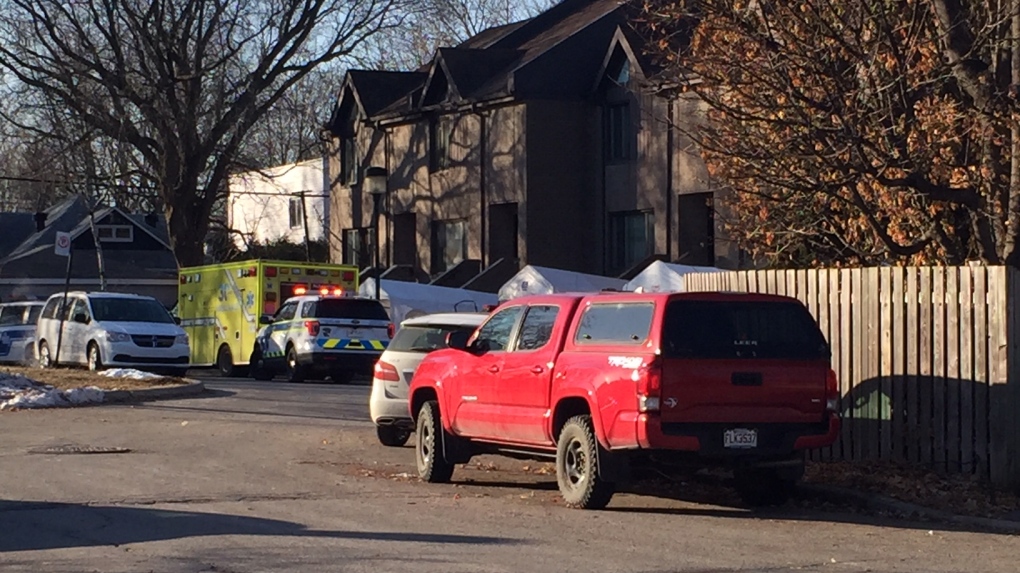Warning: This story contains graphic details about domestic violence.
On Tuesday, the Coroner’s Office released Coroner Andrée Kronström’s inquest report into the deaths of Dahia Khellaf, 42, and Adam, Aksil and Nabil Yssaad, which occurred in December 2019 in the Pointe-aux-Trembles borough of Montreal.
Yssaad killed Kehllaf, who was his spouse, and their two children, Adam and Aksil.
Kronström will comment on his findings Wednesday afternoon at a press conference.
In a press release sent out on Tuesday, the Coroner’s Office states that “the coroner was able to understand the risk factors at the origin of this violence and draw certain conclusions as to the aggravation of the violence leading to familicides, followed by the suicide of the perpetrator, following 11 days of hearings and 60 testimonies heard, including numerous organizations and ministries working to study and prevent domestic violence.”
The public hearings and the reading of the action plans and integrated government strategy enabled the coroner to note “the efforts made in recent years to reduce the incidence of these deaths, but also the distance still to be covered,” the press release said.
Her 19 recommendations are structured around the following six actions: act in emergency situations, provide a trajectory for perpetrators of domestic violence, invest in the specialized section of the Monreal police service, add an investigation section to police practice in matters of domestic violence, complete the deployment of specialized courts, and raise awareness of domestic violence and coercive control from an early age.
 The bodies of a woman and two young children were found in a home in Montreal’s east end Pointe-aux-Trembles neighbourhood.
The bodies of a woman and two young children were found in a home in Montreal’s east end Pointe-aux-Trembles neighbourhood.
In her first suggestion for preventing domestic violence, she writes in the report that “unequal relations in intimate relationships must be ironed out, starting in childhood,” and that “all players in the health, justice, public safety and community organization networks, as well as family and friends, must be better equipped to detect violence and risk situations, including the dangerousness associated with separation, especially in the presence of children.”
In her view, we also need to “adopt a prevention strategy that takes into account the links between suicide and domestic violence,” and pay “particular attention to the phenomenon of familicide/suicide by continuing to document it, but also to detect its warning signs.”
She points out, however, that “significant progress has been made to protect victims of domestic violence since 2019” and that there is “an unprecedented mobilization of very many players.”
 A small collection of toys has appeared on the lawn of a Montreal family found dead in their east end home.
A small collection of toys has appeared on the lawn of a Montreal family found dead in their east end home.
In her opinion, the Rebuilding Trust report, with its 190 recommendations, was “the turning point of a profound transformation.”
“I note that the trajectory of Mrs Khellaf, Mr Yssaad and their children echoes many of the findings of this report. The results of the recommendations made during this investigation are positive and have improved the lives of the victims and their children. However, there is still a long way to go.”
- Legal system failed family killed in Pointe-aux-Trembles, Shield of Athena director suggests
To improve the situation, Kronström maintains that “the actions of the many players must be concerted to equip the victims, children and perpetrators of domestic violence” and that the many “tools available must be known by the population and particularly in Montreal.”
She adds that “to get to the root of the problem, young people and new arrivals need to be made aware of domestic violence, also known as intimate partner violence and associated with coercive control.”
A long hell
In July 2022, Chief Coroner Pascale Descary ordered a public inquest into the murder of Khellaf and her two sons, aged four and two, as well as the suicide of 46-year-old Yssaad.
Descary’s announcement followed the filing of four damning reports by coroner Alain Manseau on the familicide.
Yssaad went to a Lanaudière hospital, where he threw himself off the sixth floor on Dec. 10, 2019, and it was while trying to warn his relatives that police officers later discovered the three bodies lying side by side in Khellaf’s bed. All three had been strangled in their sleep with an electric cable.
The couple had been united by an arranged marriage during a trip Khellaf had taken to her native Algeria in 2012. She had then returned alone and sponsored the arrival of her husband, who arrived in Canada in 2014. The relationship deteriorated as soon as he arrived.
In August 2018, she went to the police station in her neighborhood, where she denounced her husband for threats against her.
It was then that a round of arrests, indictments, releases, breaches of conditions and constant lies to the authorities began for Yssaad, who openly mocked the conditions imposed on him, even in front of the judges.
On July 20, 2022, the Coroner’s Office announced that “new facts have been brought to the attention of the Coroner’s Office, which cause the Chief Coroner to deem it useful to hear witnesses in order to establish the circumstances of the four deaths as accurately as possible.”
The mandate was entrusted to Kronström and public hearings were held in the fall of 2023.
This report by The Canadian Press was first published in French on June 11, 2024.